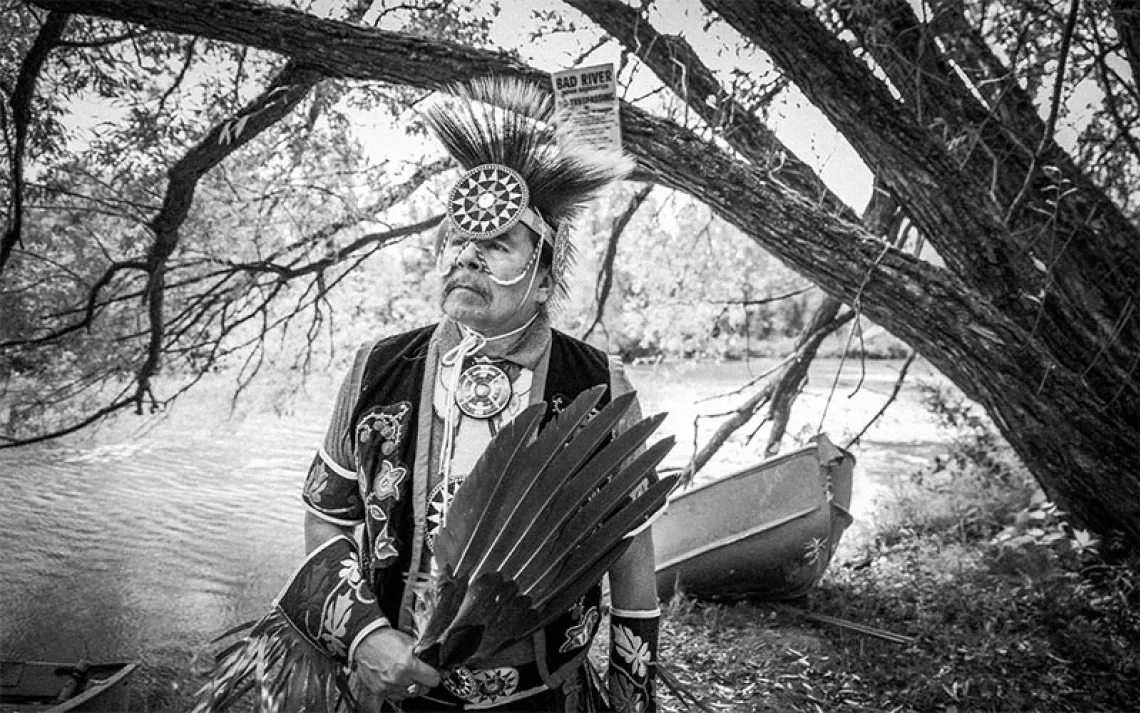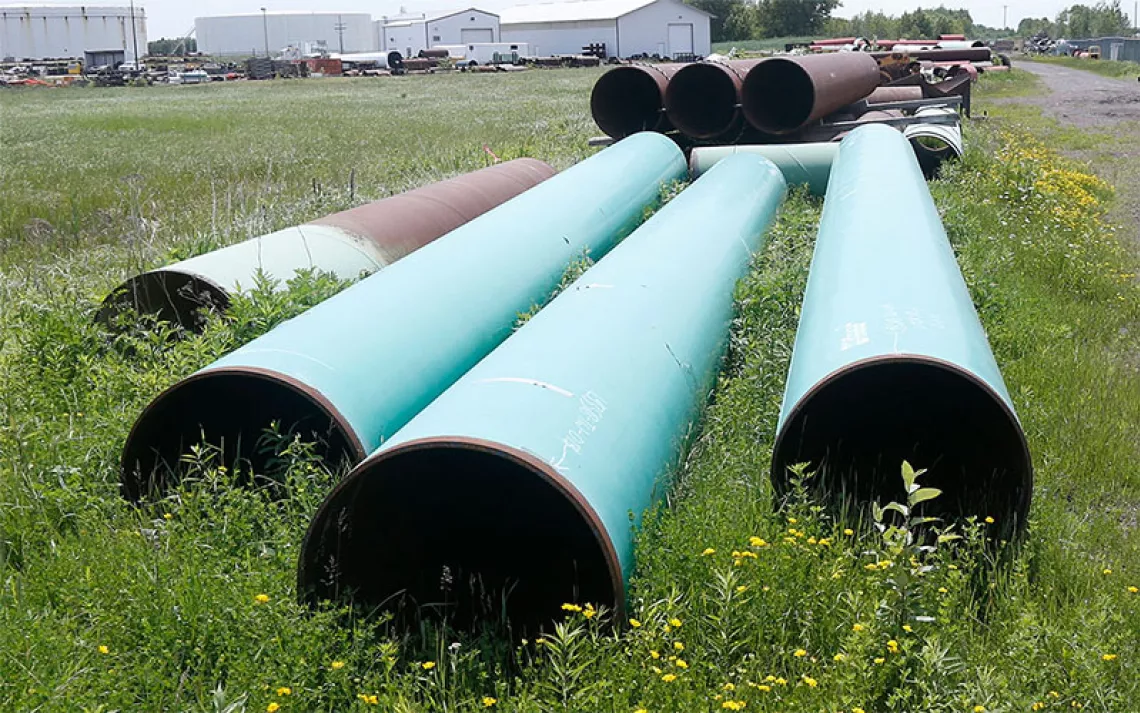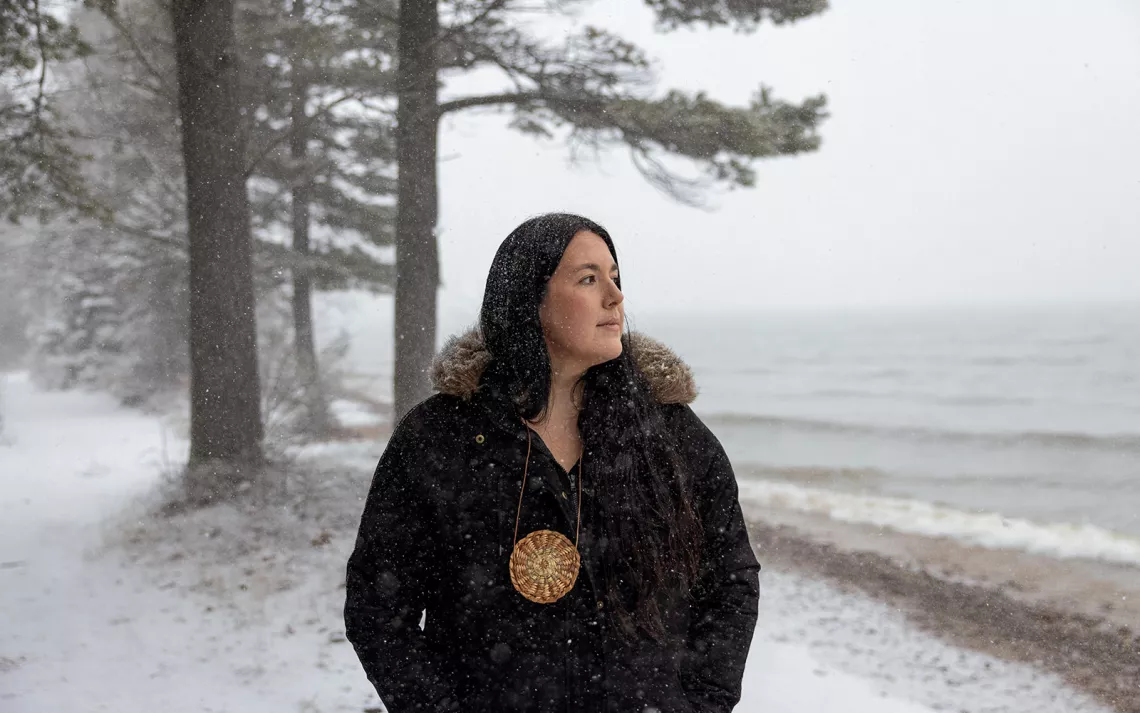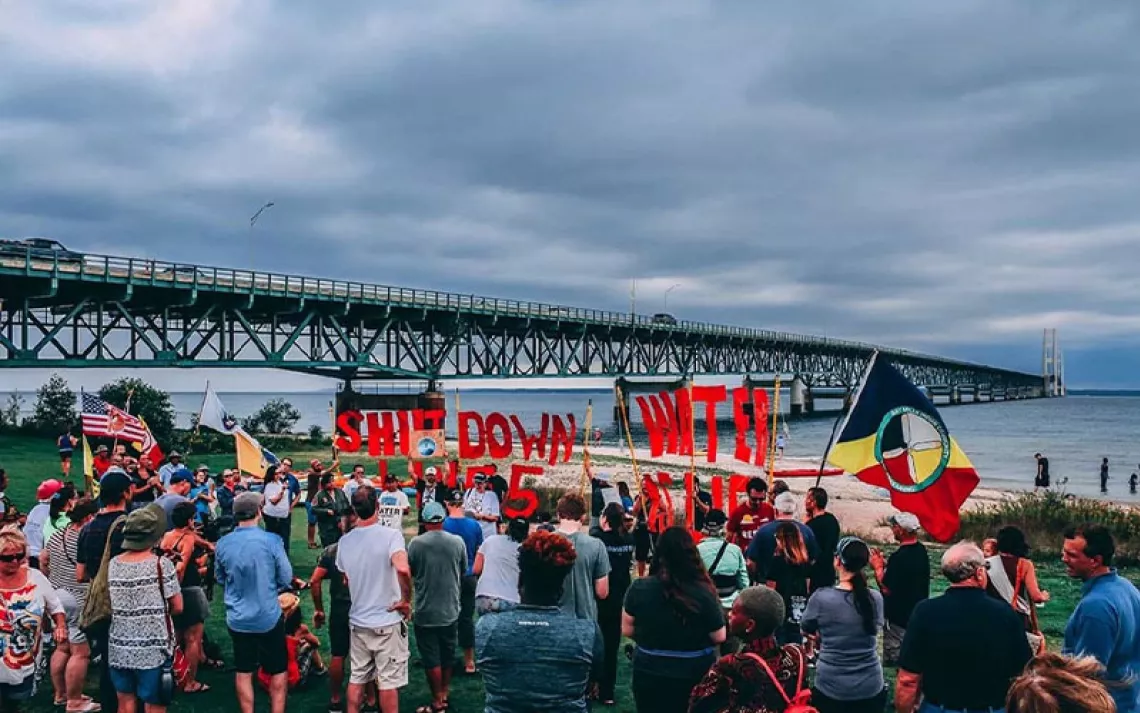Water Is Life. The Line 5 Oil Pipeline Threatens So Much of It.
It’s past time to shut down this dangerous oil and gas pipeline in the Great Lakes
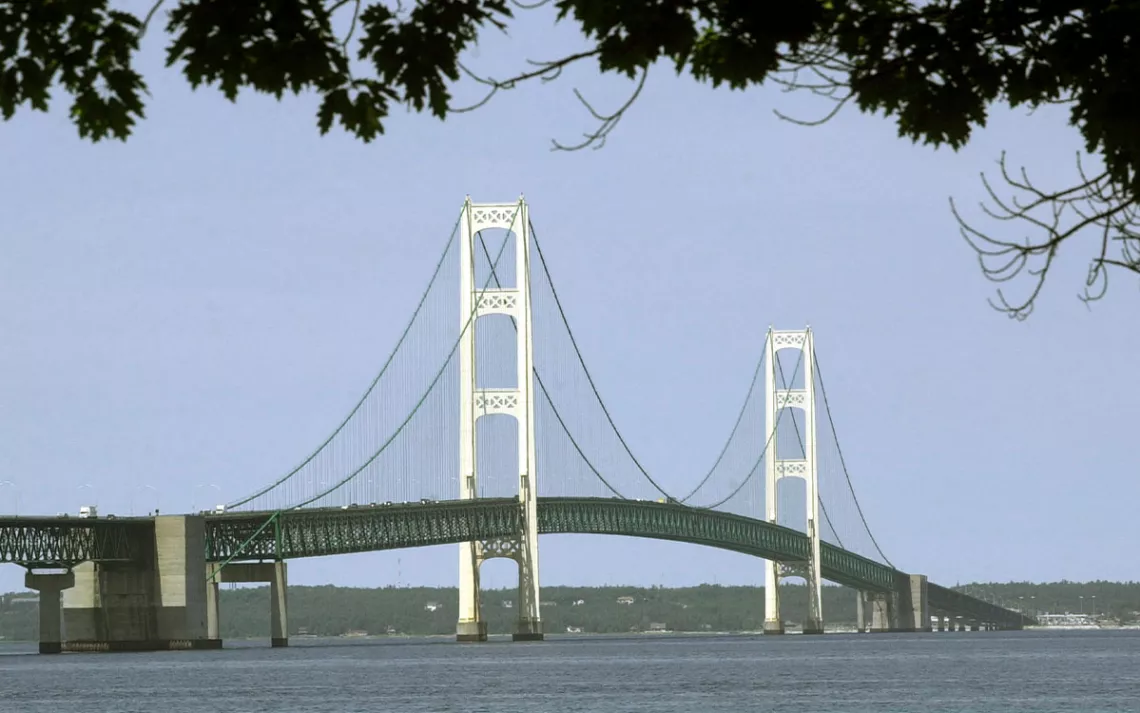
The Mackinac Bridge. | | Photo by Carlos Osorio/AP File
Distributed by Trice Edney Newswire
For years, the Bad River Band of Lake Superior Chippewa and other tribes of the Great Lakes region have been leading a true David vs. Goliath fight against the Canadian oil giant Enbridge.
Enbridge’s 71-year-old Line 5 oil and gas pipeline, which trespasses through sovereign tribal lands, is an environmental disaster waiting to happen. And not just for the tribes.
Every day, the pipeline carries nearly 23 million gallons of crude oil and natural gas from Wisconsin to Ontario, Canada. It has already leaked 35 times over its lifespan and is only getting more dangerous. In addition to running through the reservation of the Bad River Band, it crosses the Straits of Mackinac between Lakes Michigan and Huron.
More than 40 million people get their drinking water from the Great Lakes, which contain one-fifth of the entire world’s surface freshwater. That includes the residents of major US cities like Chicago, Milwaukee, and Cleveland. And of course, replacing our outdated fossil fuel infrastructure with renewable energy is essential to addressing the climate crisis and keeping our air breathable.
Bad River Ojibwe youth leader Alexus Koski says, “It is sometimes difficult to remain hopeful about our future, but it is far too important and far too dangerous to remain silent, to allow this pipeline to continue operating another day—my future is at stake, my culture is at stake, our climate is at stake.”
Koski traveled to Washington, DC, last week with the Indigenous Women’s Treaty Alliance to drive home the urgency of shutting down Line 5. They delivered a petition with over 9,000 signatures calling on the Army Corps of Engineers to conduct a thorough review of, and ultimately reject, Enbridge’s proposal for a reroute of the pipeline.
Last year, a federal judge ruled that a 12-mile stretch of Line 5 is trespassing on the Bad River Band’s land in northern Wisconsin. Despite part of the pipeline being exposed above ground due to erosion and the risk that a major oil spill could happen at any time, Enbridge was given until 2026 to shut down or move the pipeline. Line 5 also continues to operate in defiance of an order by Michigan Governor Gretchen Whitmer to shut down the part of the pipeline running under the Straits of Mackinac.
Now Enbridge is seeking permits from the Army Corps to reroute the pipeline away from the reservation—but still within their watershed—in an effort to keep Line 5 alive. Enbridge also wants to construct a tunnel in the bedrock under the Straits that poses a dangerous risk of explosions. Meanwhile, prolonging the lifespan of this pipeline continues to threaten the Great Lakes. And it continues to threaten the tribes’ way of life, which is largely based on the water and the beds of wild rice, or manoomin, those waters feed.
We know where Enbridge’s priorities are. The company rakes in an estimated $1.8 million from the pipeline every day.
Enbridge has claimed to use the Seven Grandfather Teachings in Native American culture as a guide for its dealings with tribes. Those are love, respect, bravery, truth, honesty, humility, and wisdom. But Enbridge’s main case for keeping Line 5 open is anything but honest. The company says shutting down the pipeline would cause energy shortages and price increases. However, a study by the logistics and supply chain experts at PLG Consulting found there are a variety of replacements for Line 5 that would avoid both. Moreover, now is the time we should be replacing outdated fossil fuel energy infrastructure with more cost effective, resilient, and healthier clean energy.
The simple truth is we do not need Line 5.
This is a classic struggle of organized corporate money interests against organized people. Tribes have done a masterful job leading the organizing and building coalitions with environmental groups and clean water advocates. But it is also on the US government to do the right thing. And there are a few things it can do.
First, the Army Corps of Engineers can conduct a more thorough review of Enbridge’s plans than is currently underway and conduct an environmental impact statement. If it is done correctly, we hope that would lead to the Army Corps rejecting Enbridge’s permit request.
Finally, because it is a cross-border pipeline, Line 5’s operation requires a presidential permit. President Biden should revoke that permit, which would shut down the entire 645-mile pipeline—something that is already long overdue.
We celebrated World Water Day this week. We should remember that access to clean, safe water is a UN-recognized human right. Line 5 threatens that right, along with our climate and our Indigenous communities.
Alexus Koski reminds us, “We owe that much to young people and to future generations. Shut down Line 5! Water is life!”
 The Magazine of The Sierra Club
The Magazine of The Sierra Club
